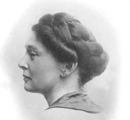English, Department of

University of Nebraska Studies in Language, Literature, and Criticism
Date of this Version
January 1919
Abstract
The conspicuousness of astronomical lore in the poetry of Chaucer is due to its importance in the life of his century. In the mediaeval period, astronomy (or 'astrology,' for the two names were used indifferently to cover the same subject) was one of the vital interests of men. The ordinary man of the Middle Ages knew much more than do most men to-day about the phenomena of the heavens; conveniences such as clocks, almanacs, and charts representing celestial phenomena were rare, and direct observations of the apparent movements and the relative positions of the heavenly bodies were necessary for the regulation of man's daily occupations. Furthermore, the belief in a geocentric system of the universe, which in Chaucer's century was almost universally accepted, was of vast significance in man's way of thinking. Accepting this view, all the heavenly bodies seemed to have been created for the sole benefit of man, inhabiting the central position in the universe; their movements, always with reference to the earth as a center, brought to man light, heat, changes of season-all the conditions that made human life possible on the earth.


Comments
UNIVERSITY OF NEBRASKA STUDIES IN LANGUAGE, LITERATURE AND CRITICISM NUMBER 2, Lincoln, Nebraska, 1919